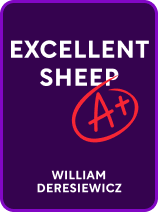

This article is an excerpt from the Shortform book guide to "Excellent Sheep" by William Deresiewicz. Shortform has the world's best summaries and analyses of books you should be reading.
Like this article? Sign up for a free trial here.
Are you or your child considering college? What are your priorities?
If you’re wondering how to choose a college, conventional wisdom might lead you astray. Prestigious schools might seem to be the way to go. But, not only are they outrageously expensive, they don’t necessarily provide the best education, according to William Deresiewicz.
Keep reading to learn Deresiewicz’s advice, along with some tips on how to make the most of a college tour.
How to Choose a College
When it comes to advice on how to choose a college, Deresciewicz offers two recommendations. First, he advises prospective college students to disregard rankings and prestige. Measures of reputation reflect how profit-oriented and selective a school is, not the quality of its education. Instead, he implores students to attend second-tier liberal arts colleges and liberal arts colleges that are housed within public universities. He claims these schools are more likely to value a high-quality education over reputation.
(Shortform note: Several experts on college admissions agree with Deresciewicz’s assessment that rankings don’t always reflect a school’s quality of education. However, these experts point out that it’s helpful to research schools’ rankings for particular programs. Some colleges and universities have certain programs that are strong, even if their overall rankings are low. Similarly, some strong colleges have weak programs. Before applying to any school, including second-tier colleges, high school students should check the quality of the programs they’re most interested in.)
Deresciewicz’s second tip for prospective college students is to shadow a current student at a college in which they’re interested to preview its culture and academic programs. He encourages them to look for evidence that the school deeply values learning, such as students that are intellectually curious (rather than stressed), professors who enjoy the art of teaching, and classes that prioritize character-building.
| Make the Most of a College Tour While not all colleges and universities offer the option to shadow a student, many colleges offer student-led tours that provide a window into schools’ cultures and academics. Former admissions officers recommend asking tour guides the following questions: How do students like to spend their free time? This question provides insight into whether students are overwhelmed with extracurriculars, or whether they have the time to dedicate to intellectual curiosity. What words would you use to describe the students here? The tour guide’s answer may reflect what character traits the school values. What’s something you wish was different about this school? This question may reveal whether the school places enough emphasis on learning and character-building, and it may reveal concerns about the teaching quality of professors. |

———End of Preview———
Like what you just read? Read the rest of the world's best book summary and analysis of William Deresiewicz's "Excellent Sheep" at Shortform.
Here's what you'll find in our full Excellent Sheep summary:
- How elite colleges contribute to social inequality and harm students
- The ways that elite schools prioritize profits over teaching
- How governments, schools, and parents can overhaul U.S. higher education






